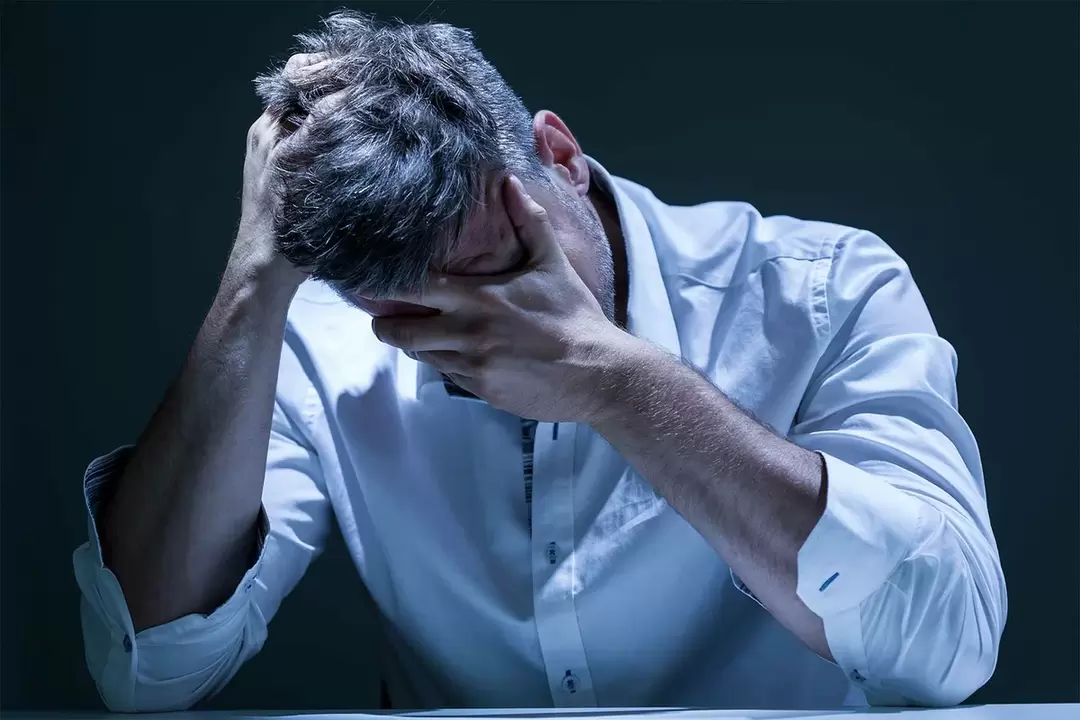
The term "prostatitis" refers to any chronic or acute inflammatory process of the etiology that occurs in the prostate gland. Because the prostate is an exclusively male organ, prostatitis only develops in men. There are many types of prostatitis, but any type of prostatitis can be divided into acute and chronic.
Acute prostatitis is caused by a number of factors - the presence of bacteria, viruses, protozoa, malnutrition, a sedentary lifestyle, bad habits and others. >
The prostate is an external secretory gland, meaning that the secretion it produces enters the external environment. In humans, the prostate is an unparalleled organ whose activity depends on male sex hormones, especially androgen and steroid hormones.
The prostate is located behind the bladder, holding together the initial part of the urethra into which its channels open.
One of the functions of the prostate is that it blocks the exit of the bladder during an erection. The prostate is responsible for feeling the orgasm, which is due to the gland's abundant supply of nerves, that is, its innervation.
Temperature
One of the first signs of acute prostatitis, regardless of the cause, is a rise in temperature. As with all inflammatory processes in the body, the temperature rises to subfebrile values - about 37, 5-380FROM.
Moreover, the more intense the immune response, i. e. the response of the body, the higher the temperature. That is, at the peak of the disease, body temperature can rise to as much as forty degrees.
Of course, a rise in temperature alone should not indicate the occurrence of prostatitis.
Usually, the first symptoms of prostatitis are difficulty urinating using additional muscles - the abdominal muscles - violation of the ejaculatory mechanism, itching, burning and other unpleasant phenomena in the perineum or genitals.
Frequent going to the toilet
This is an increased urge to urinate (with the release of a small amount of urine), a feeling of "residual urine" after emptying the bladder, an unpleasant orgasm, and a decrease in libido as a result.
General weakness
As with any inflammatory disease, intoxication syndrome occurs with general weakness, decreased performance, nausea, and possibly vomiting.
There are also disorders of the nervous system - depression, irritability and others.
What causes prostatitis
There are also factors that predispose to prostatitis - hormonal imbalances, including age, prolonged sexual abstinence, smoking, general hypothermia, stool retention, sedentary lifestyle, lack of physical activity, overheating, chronic sciaticaimmunodeficiency conditions, age-related changes in the body. body.
Particular attention should be paid to predisposing factors such as inflammatory diseases of the kidneys and urinary tract, as the infection may spread upwards.
The disease sometimes begins with urethritis
The initial stage of prostatitis is characterized by a fairly typical clinical picture - urinary lethargy, frequent urination, fever. Possible pain in the perineum. Sexual dysfunction is often violated.
However, sexual dysfunction is more of a psychological aspect, physiological or clinical weeks. The process of ejaculation itself either causes no pleasure at all or even causes pain, leading to a conditional reflex that leads to a decrease in libido.
Purely physiologically, prostatitis can lead to a lack of potency only in the late stages. The initial stage is also called the "first signs" stage - urination does not occur immediately as usual, but with a slight delay.
The prostate is already enlarged at this stage, but painless to the touch. However, the boundaries of the prostate are well palpable and the middle sulcus is palpable - as is the norm. The most interesting thing is that the phase of the first signs can take quite a long time - up to three years.
The patients of urologists have become increasingly young in recent years. That is, the inflammation of the prostate "rejuvenates. "This is due to the development of "outrageous" recreation - surfing, diving, skiing and kayaking. Improper exercise and complete hypothermia of the body can lead to prostatitis.
And paradoxically, an overly "relaxed" lifestyle can also predispose to prostatitis. This is due to stagnation of blood and lymph in the pelvis - a sedentary and sedentary lifestyle is not the best way to distribute blood in the organs.
Improperly cured inflammatory diseases, which may not be related to pelvic organs at all, are also predisposing factors for prostatitis. This is due to the fact that the infection (of any etiology) is able to penetrate the prostate gland in a hematogenous or lymphogenic manner from the primary focus. When the pool is congested, the infection settles there and begins to multiply.
It is also possible that prostatitis occurs due to stress. Stress weakens the immune system, thereby increasing the risk of prostatitis.
STDs - "sexually transmitted diseases" - are a major cause of prostatitis. Gonorrhea, if not treated properly, almost always causes prostatitis.
However, let’s not forget that you can’t get from one extreme to the other. With prolonged sexual abstinence, blood and lymph stagnate again in the pelvic organs, a secret stagnates in the prostate, leading to prostatitis.
The prognosis for timely detection and appropriate treatment of the disease is favorable, however, if the disease is left to chance, it can become chronic or a secondary infection can develop, with rather sad consequences.


























